
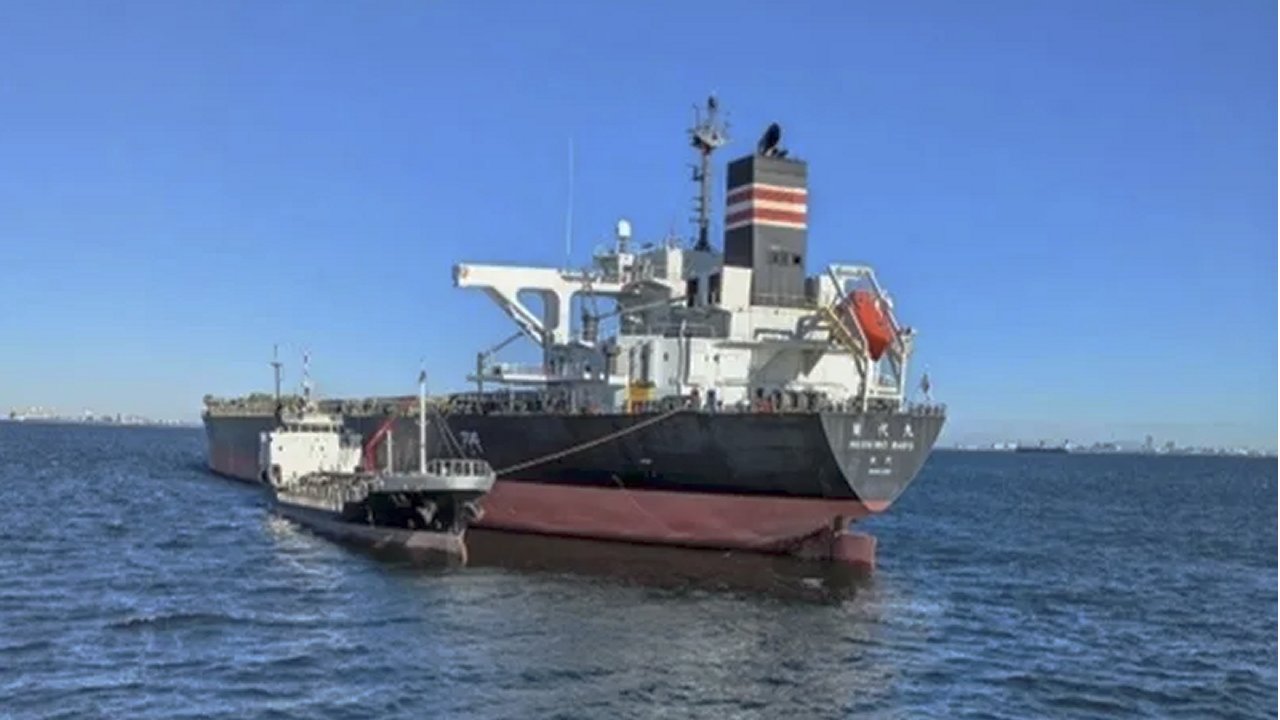 |
On February 9, NYK Line embarked on a landmark test run involving biofuel on its coal carrier, the Noshiro Maru, which is operated for Tohoku Electric Power. It was the first time in Japan that a coal carrier was used to test biofuel for a domestic utility company.
The delivery of biofuel to the vessel was performed by Mitsubishi Corporation Energy Co., Ltd in the country's Keihin region - an area which covers Tokyo, Kawasaki, and Yokohama.
Biofuels are derived from organic resources, or biomass, such as agricultural residues and waste cooking oil. When combusted, they are considered to produce virtually zero carbon dioxide (CO2) emissions. Their compatibility with heavy-fuel-powered engines — predominant among large merchant vessels — positions biofuels as a pivotal option for reducing greenhouse gas (GHG) emissions during the critical transition from heavy oil to zero-emission fuels.
Moreover, utilising biofuels for navigation purposes plays a role in reducing Scope 3 GHG emissions linked to transporting customers' cargo. NYK has expressed its commitment to promoting decarbonization within marine transport by focusing on integrating biofuels and other next-generation fuels into its operations. The company emphasises that adjusting to biofuels not only aligns with regulatory efforts but also contributes significantly to lowering GHG emissions across customers' entire supply chains.
As the maritime industry faces increasing pressure to reduce its carbon footprint, initiatives like NYK's biofuel test run demonstrate tangible steps toward sustainable practices. Although biofuels emit CO2 during combustion, the lifecycle of these fuels — where plants absorb CO2 while growing — offers a pathway to what is termed carbon neutrality. This aspect makes biofuels a promising alternative to conventional fossil fuels, potentially mitigating the environmental impact of marine transportation.
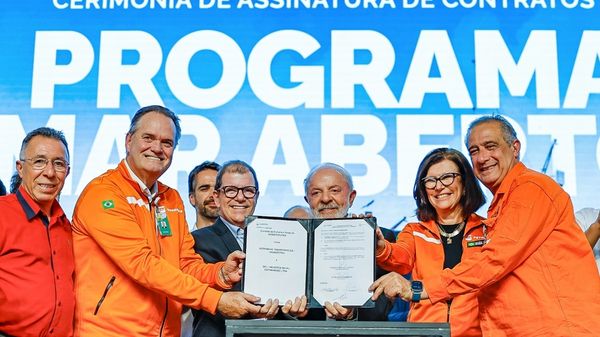
|
Petrobras and Transpetro order 41 vessels worth $470m for fleet renewal
Brazilian state oil companies contract gas carriers, barges and pushboats from domestic shipyards. |
|
|
|
||
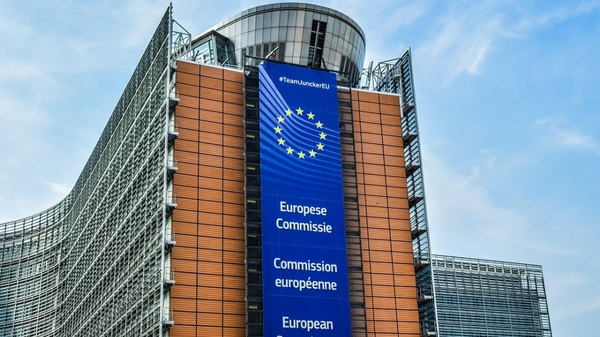
|
EU proposes phase-out of high-risk biofuels from renewable energy targets by 2030
Draft regulation sets linear reduction trajectory starting in 2024, with contribution reaching zero by end of decade. |
|
|
|
||
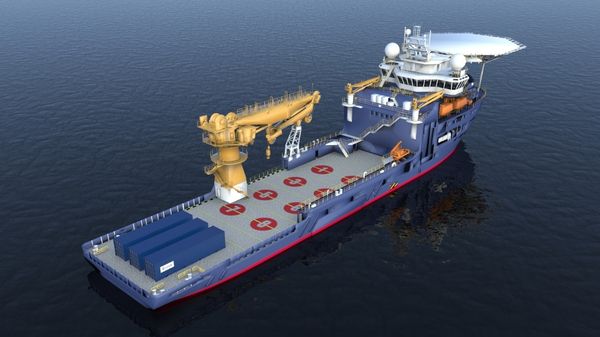
|
H2SITE launches Norwegian subsidiary to advance ammonia-to-power technology for maritime sector
Spanish technology firm establishes Bergen hub to accelerate deployment of ammonia cracking systems for shipping. |
|
|
|
||

|
CMA CGM names 400th owned vessel as methanol-fuelled containership
French shipping line reaches fleet ownership milestone with 15,000-teu dual-fuel methanol vessel. |
|
|
|
||
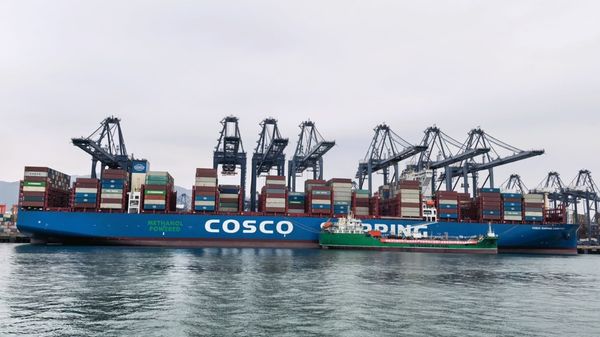
|
Wah Kwong adds China’s first dual-fuel methanol bunkering vessel to managed fleet
Da Qing 268 completed maiden operation at Shenzhen’s Yantian Port on 21 January. |
|
|
|
||
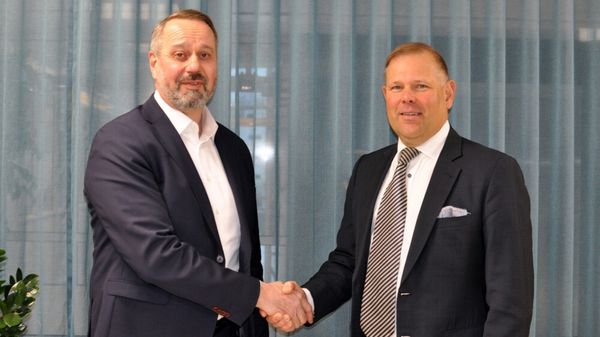
|
Sumitomo SHI FW licenses VTT syngas technology for sustainable fuels plants
Agreement enables production of green methanol and SAF from biowaste for global gasification projects. |
|
|
|
||
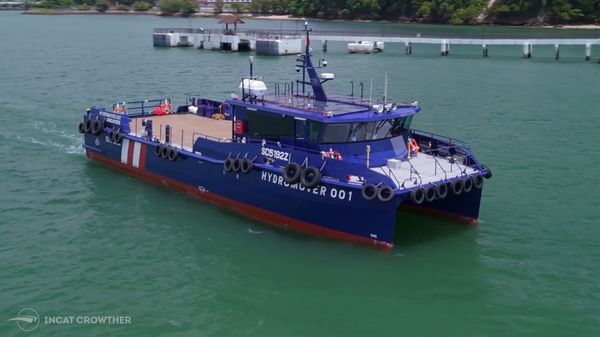
|
Yinson GreenTech launches upgraded electric cargo vessel in Singapore, expands to UAE
Hydromover 2.0 offers increased energy storage capacity and can be fully recharged in under two hours, says designer. |
|
|
|
||
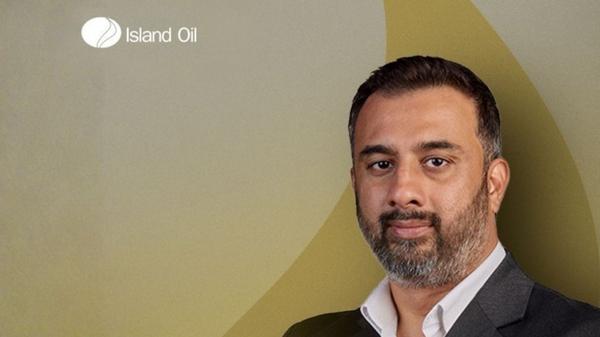
|
Island Oil appoints Nildeep Dholakia as senior trader in Dubai
Marine fuel supplier expands Dubai team as part of regional growth strategy. |
|
|
|
||
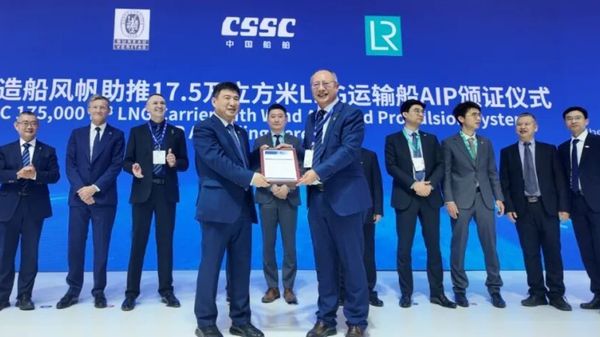
|
Dalian Shipbuilding's wind-assisted LNG carrier design receives Bureau Veritas approval
Design combines dual-fuel propulsion with foldable wing sails to cut emissions by 2,900 tonnes annually. |
|
|
|
||
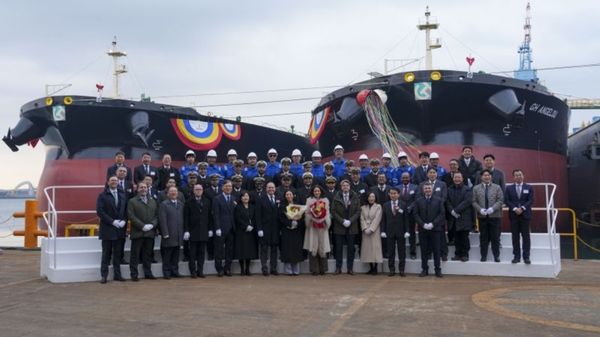
|
Anglo-Eastern adds two methanol-ready Suezmax tankers to managed fleet
GH Angelou and GH Christie were christened at HD Hyundai Samho Shipyard on 5 January. |
|
|
|
||
| Petrobras secures ISCC EU RED certification for B24 biofuel blend at Rio Grande [News & Insights] |